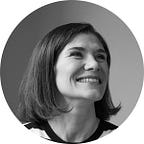You have probably heard that a lot in this life depends on our mindset and attitude. I am sure that you know such sentences:
“We can’t change other people, we can change our attitude towards them.”
“It’s all a matter of interpretation.”
etc.
The teachings of lifestyle coaches are mainly based on changing the mindset. I really like the approach of Carol S. Dweck, a psychologist at Stanford University. She mainly brings in comparisons of human abilities, actions, and ways of thinking. Dweck uses the terms fixed mindset and growth mindset. For example, she highlights praise. It makes a big difference whether we praise a child’s intelligence and ability or their efforts. The first two are more about supporting a fixed mindset. However, as we develop the habit of motivating and acknowledging ourselves and our children through our own efforts and development, we will support the growth mindset. Thanks to this, we are able to perform much more productively and constantly develop.
I am not an expert on Dweck’s research or mindset, I use these approaches to understand my own field of expertise, as well as to support the development of myself, my children, and my students. Today’s post was inspired by a short article I read and wish to share. In the article, Kimberly Wilson, a psychologist, and author of “How to Build a Healthy Brain” (2020) points out one approach which gave me a new angle about this mindset stuff.
Kimberly Wilson talks about the fact that we are the creators of our own experiences, which, based on neuroscience, means how our brains predict and interpret the world around us and our place in it. For example, you are going to perform on stage, your pulse is picking up and there are butterflies in your stomach. Does that mean you’re worried or excited? Psychologically, there is no difference. An increase in cortisol levels is simply your body’s preparation for the upcoming performance. It prepares your limbs and brain for the extra energy it needs to perform. Consequently, the only thing that worries or excites us about this situation is the way we think about the feeling caused by the increase in cortisol levels.
There is a big difference between telling myself that I feel nervous or that I am ready!
It makes a big difference whether you feel that you are not able to perform well or, conversely, you are very capable of doing so. This attitude affects your performance and experience in general. According to Wilson, it can be called grit or mindset, but this is certain:
Learning to associate these physical sensations with a sense of positive challenge or readiness for action will help foster psychological resilience.
Kimberly Wilson’s article was mainly driven by concern that there has been a lot of rhetoric and attitudes in society lately that it is ok to feel anxious. This can lead to worsening depression, although it would be possible to prevent it at an early stage. She doesn’t, of course, claim that all anxieties are related to identity and mindset, but she does want to point out that we can’t confuse specific mental health conditions with normal sensations. This, in turn, can play a major role in our daily lives and well-being.
In conclusion, I agree with Wilson that we need to be careful about the mental messages we expose ourselves. Choose your concepts consciously, they have the power to create your world.
Dear reader, do you agree with Carol Dweck and Kimberly Wilson?
I teach drawing to adults, or rather, I teach drawing as a thinking tool. On a daily basis, I encounter a lot of fixed mindsets about skills and the anxiety of my students about the upcoming training. I have already used Dweck’s approach to talk to students about why they feel they can’t draw. I am talking about how drawing has been misvalued and from which we have come to believe that it is something very complicated. Or that you have to be able to draw beautifully and well. From Kimberly Wilson, I take the practice of introducing to learners before my training that the anxiety they feel may not be a fear of drawing at all. Let’s see it as excitement that comes from the opportunity to learn a new skill or to recall a beloved old skill.
Comment on what you take with you?
Sources:
Dweck, C. (2006). Mindset: the New Psychology of Success. Ballantine Books.
Wilson, K. (2021). I think, therefore I am. Psychologies, 11(2021), 49.
